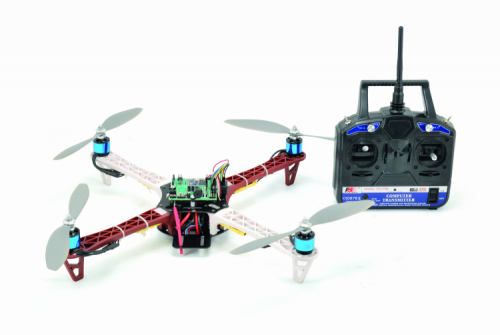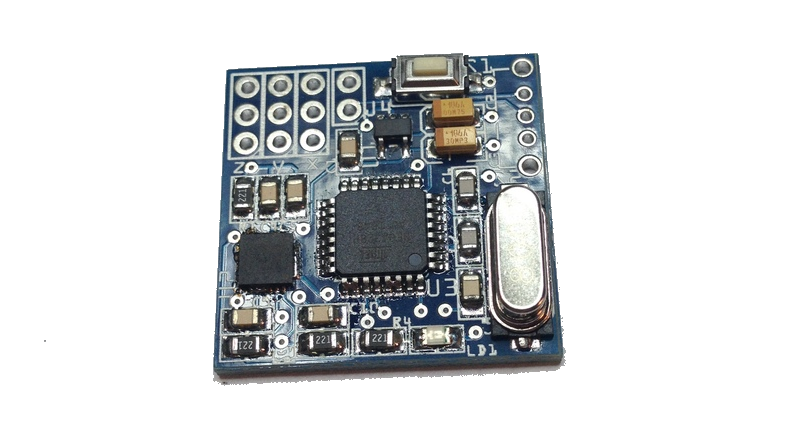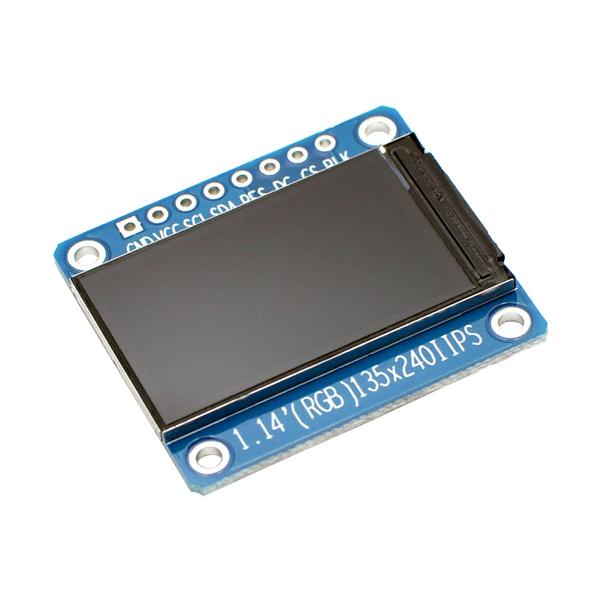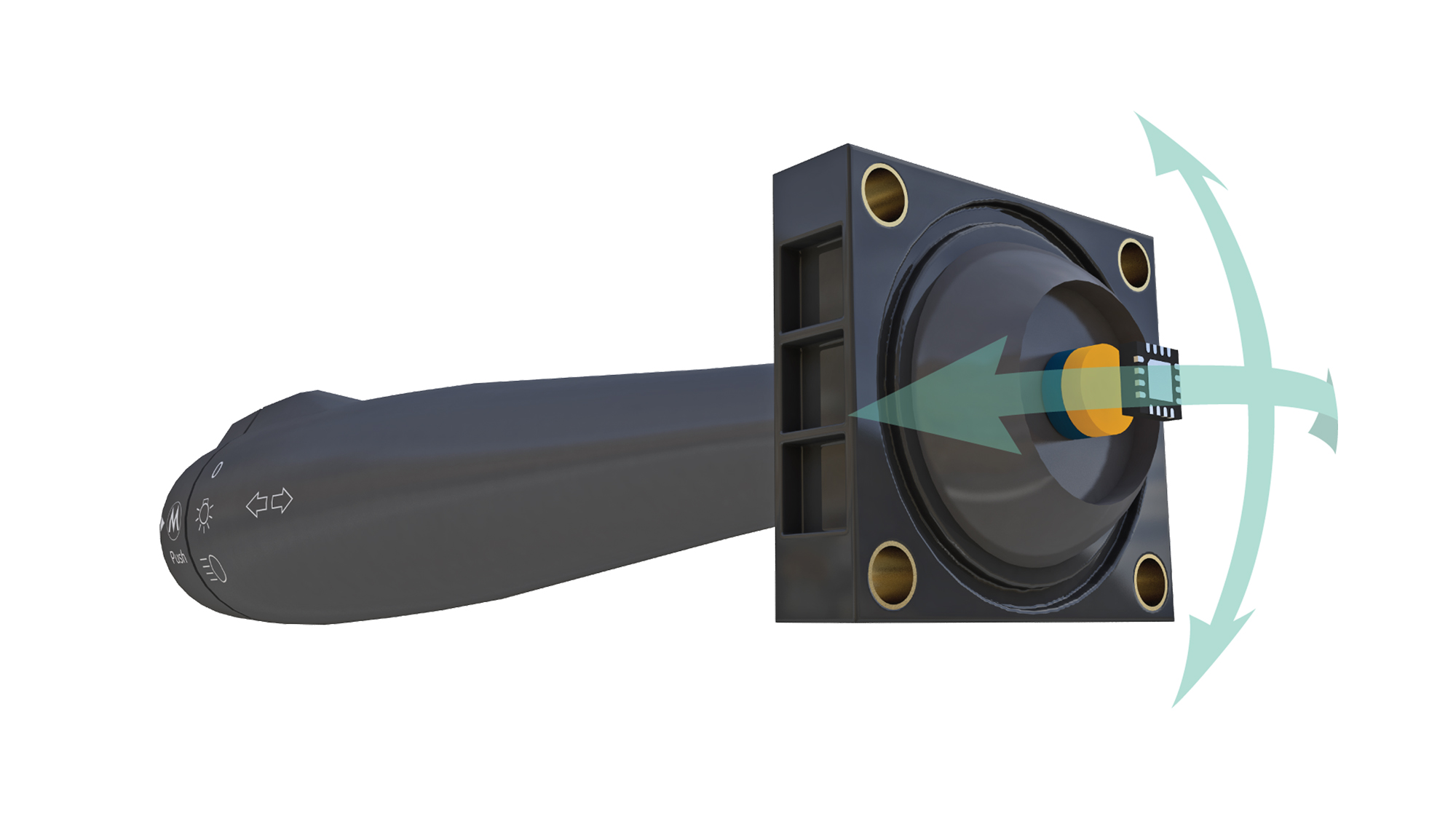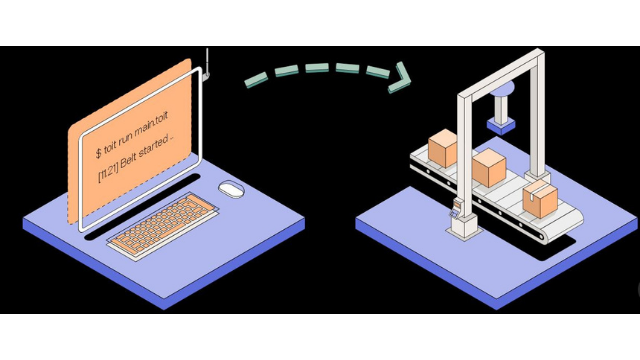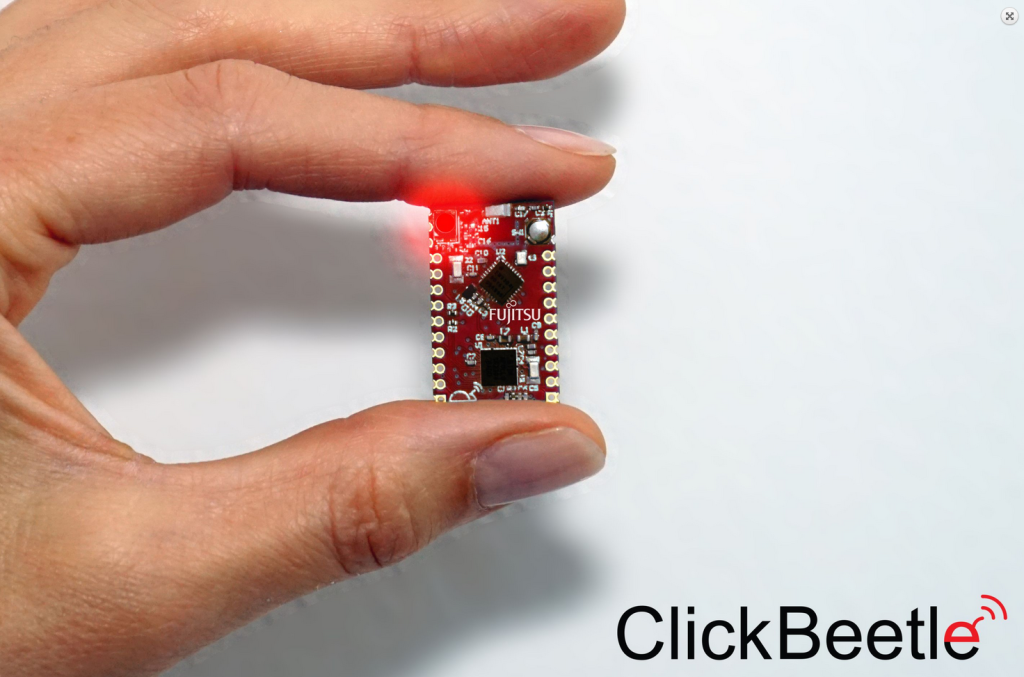
Adding components from Ambiq Micro and Talent Highland, Fujitsu Electronics Europe has increased its Bluetooth Low Energy portfolio.
The additional products offer customers high integration, low power consumption and flexibility, says Fujitsu Electronics Europe (FEE), and it has produced the ClickBeetle reference platform (pictured) to facilitate the integration of Bluetooth Low Energy products into applications.
Ambiq Micro’s Bluetooth Low Energy components make Bluetooth Low Energy applications more powerful and efficient, claims FEE. The Cortex M4 in Apollo 2 operates at up to 48MHz at only 10-microA/MHz with a deep-sleep current of two micro A. Apollo 1 operates at up to 24MHz at 34-micro A/MHz and has a deep-sleep current of 143-nanoA. Additional components offer the possibility of lowering the deep-sleep current to 22-nanoA. Depending on the requirements, Ambiq Micro offers different bundle packages to combine its Apollo 1 and Apollo 2 microcontrollers or real time clocks with an EM9304 BLE communication chip. Combinations of microcontroller and Bluetooth Low Energy chips are suitable for high-performance applications, while combinations of real time clocks and Bluetooth Low Energy are ideal for cost-sensitive Bluetooth Low Energy beacons. Packages range from BGA, CSP and QFN packages. For very small applications, Ambiq Micro also offers a SoC that combines the Apollo 2 microcontroller and EM9304 BLE in a 4.0 x 4.0mm LGA package with 64 pins.
Customers who would like to integrate Bluetooth Low Energy further can also use a Talent Highland SIP. Components such as a DA14580 with ARM Cortex M0 16 MHz and 42kbyte RAM, 1Mbit SPI flash, crystals, passive components and antenna are bundled in a package measuring only 7.0 x 7.0mm. Thanks to the internal DC/DC converter, the small module also supports three and 1.5V batteries. Depending on the requirements, FEE customers can also create their own package with their own components.
FEE offers its reference platform, ClickBeetle, for application-oriented evaluation and development. It measures just 16 x 26mm and uses a hardware-independent fixed pin layout, making it easy to replace and evaluate Bluetooth Low Energy components, says Fujitsu.





